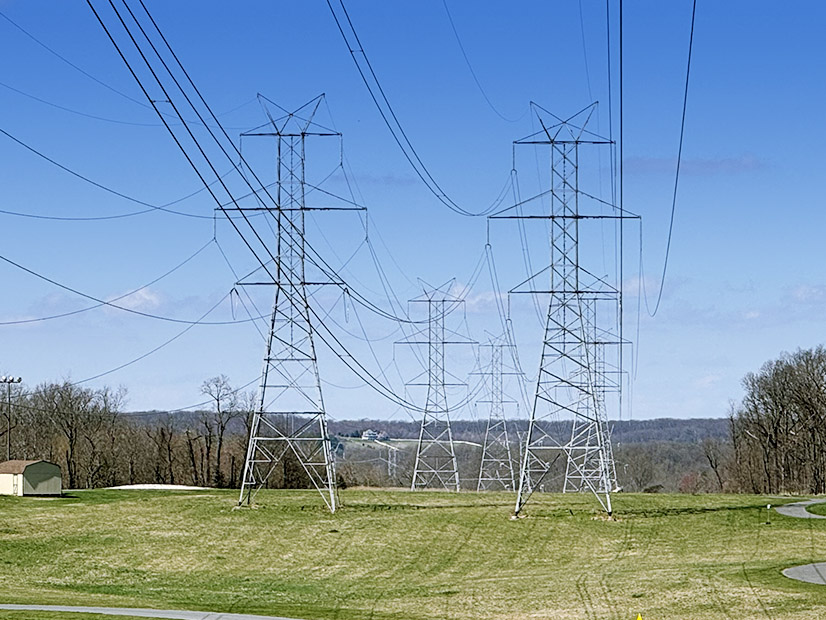CARMEL, Ind. — MISO is scrapping an earlier suggestion that it accept and study expedited transmission project requests quarterly.
Now the grid operator is turning to its stakeholders for ideas on how to handle mounting requests for accelerated approval.
Senior Manager of Expansion Planning Amanda Schiro said while batching expedited project review requests into quarterly studies works for MISO internally, members have indicated a quarterly schedule likely would result in missed construction deadlines. However, Schiro said MISO still hopes to put a “more defined time frame” on expedited request submittals and cut down on receiving them “whenever.”
“Time is truly the driving factor we need to take into account,” Schiro said during a May 1 Planning Subcommittee meeting. “We want to continue to meet the needs of this community.”
Schiro also said members had concerns that quarterly groupings that contain especially large transmission projects would hold up other projects lining up for expedited treatment.
MISO late last year said it’s become inundated with expedited review requests as load flourishes and that it likely needs to rethink its approach to transmission projects that cannot wait until the usual December board approval to begin construction. (See MISO to Re-examine Schedule for Reviewing Expedited Tx Projects.) The grid operator suggested this year a quarterly schedule might solve the problem.
MISO currently accepts and studies expedited projects reviews every month as they come in, a schedule Schiro said is difficult to manage. The RTO conducts individual studies on the expedited requests to confirm the projects won’t result in reliability violations before allowing them to proceed ahead of the annual Transmission Expansion Plan cycle.
Schiro asked stakeholders to decide whether they would back an every-other-month timetable for studying expedited reviews and if they would support adding a requirement that developers pay study deposits and fees alongside their requests for expedited treatment.
“Part of putting a fee in place would allow MISO to supplement our staff to accommodate all the requests coming in,” she explained.
Schiro also asked stakeholders how they feel about removing the requirement that the Planning Advisory Committee’s approval of expedited reviews occur strictly during meetings.
“Are there ways we can engage with the PAC outside of a meeting?” Shiro asked.
Schiro said she didn’t think the PAC has ever rejected a MISO study finding of no reliability harms for an expedited review. However, WPPI Energy’s Steve Leovy said the PAC in recent years hasn’t been granting explicit approval of expedited reviews, with study results merely posted with meeting materials and not discussed during meetings.
Schiro said MISO views a lack of objections from PAC members as approval of its expedited review findings.
MISO and stakeholders will continue to mull changes to the expedited project schedule at upcoming Planning Subcommittee meetings.
NextEra Asks MISO to Study New Load and Generation Duos
Additionally, the Planning Subcommittee this year will address NextEra Energy’s request that MISO work out a method to study new load and generation concurrently when they’re proposed as a double act.
NextEra Energy approached MISO publicly in April and asked it to craft specialized rules in its interconnection queue to recognize when new generation is entering the queue for the sole purpose of supporting a specific new load, such as a large data center.
NextEra pointed out that large industrial loads increasingly want new renewable energy sources onsite, but MISO’s interconnection rules aren’t designed to account for them in tandem. NextEra said MISO and its transmission owners take stock of load growth through the annual Transmission Expansion Plan (MTEP), with that process separate from MISO analyzing new generation through its interconnection queue. NextEra said that to sync up generation and load dependent on one another, either generation owners must secure their interconnection agreements before MTEP studies kick off that year or the owners of the new load in question must get their approval to join the system before queue studies begin.
NextEra said the uneven process results in either the load or generator being subject to network upgrades without knowing the upgrade costs the other will face. The company said MISO should allow for co-located load and generation behind the same point of interconnection and recognize that “neither will show up alone if the other is not built.”
NextEra asked that MISO devise a way to study the load a generator is designed to support alongside the generator itself in its interconnection queue process. The company also asked that the interconnection agreements MISO issues to such generation be contingent on the load showing up.
Stakeholders at the May 1 Planning Subcommittee meeting said the need to address growing load is timely and the topic should be placed on the subcommittee’s calendar as soon as possible. WEC Energy Group’s Chris Plante said the issue overlaps with the need for improvements with expedited transmission project reviews, because many expedited reviews are compelled by new load.


